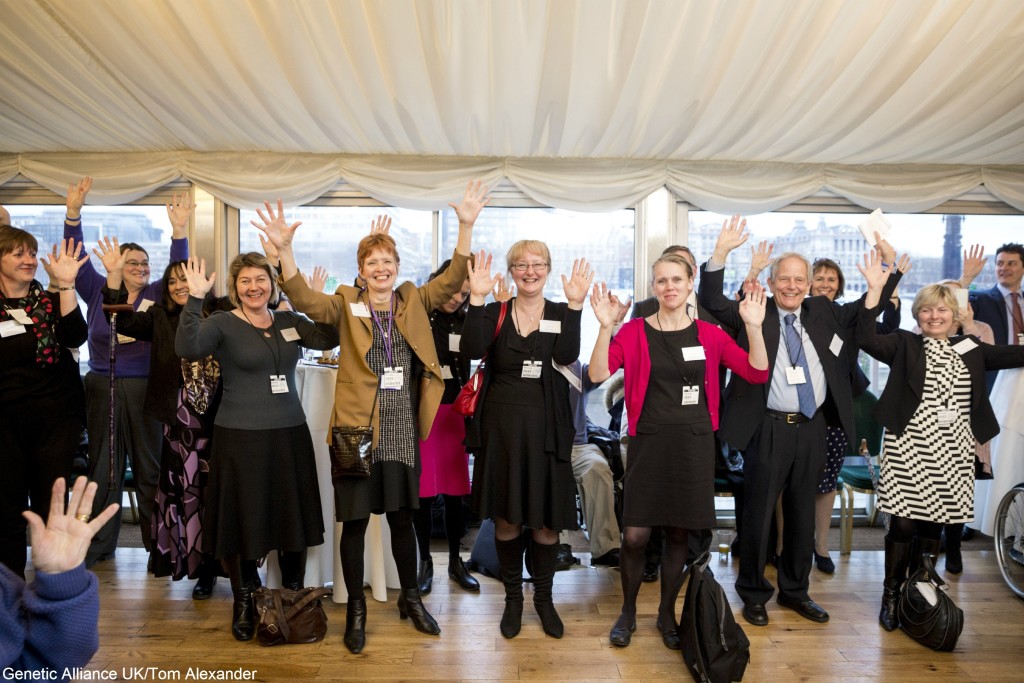Today marks international Rare Disease Day, a day which has become a global phenomenon and celebrated in over 80 countries around the world to raise awareness about rare diseases and their impact on patients’ lives.

February 29 is a rare date and it couldn’t be more fitting to be designated as international Rare Disease Day. Of course, when it is not a leap year, it is celebrated on the February 28.
There are between 5,000 and 8,000 rare diseases. Each one affects less than 0.1% of the UK’s population, but together they affect the lives of over 3.5 million people. 1 in 17 will be affected by a rare condition at some point in their life.
The Rare Disease Day 2015 theme, Living with a Rare Disease, pays tribute to the millions and millions of parents, siblings, grandparents, spouses, aunts, uncles, cousins, and friends whose daily lives are impacted and who are living day-by-day, hand-in-hand with rare disease patients. Typically chronic and debilitating, rare diseases have enormous repercussions for the whole family.
Rare Disease UK (RDUK) is the national alliance for people with rare diseases and all who support them. RDUK is campaigning health departments across the UK to implement the UK Strategy for Rare Diseases to ensure that patients and families living with these conditions have equitable access to effective services.
Key features of the UK Strategy for Rare Diseases, which was launched by Earl Howe, Parliamentary Under-Secretary of State for Health in November 2013, include:
- making sure patients and their families and carers have the information they need, are listened to and consulted
- developing better methods of identifying and preventing rare diseases
- improving diagnosis and earlier intervention for those with a rare disease
- developing better coordination of care for those with a rare disease, including joined up consultation and treatment schedules
- building on research to improve personalized approaches to healthcare for those with a rare disease
To achieve this UK-wide vision for rare diseases, there are 51 recommendations which all four countries of the UK have committed themselves to.
Much progress has been made since the UK Strategy for Rare Diseases was published last year but it has been far from uniform. Scotland and Wales have published their plans for implementation by the NHS, and implementation groups, each with strong patient representation, have been established. In Northern Ireland there has been a consultative exercise with patients, the public and healthcare professionals, and progress is being made.
NHS England made a promising start in February 2014 by publishing a ‘Statement of Intent’ but since then progress has stalled and the promises made to the rare disease community in England appear to have been forgotten about. RDUK is increasingly concerned by this lack of progress in England and is pushing to renew momentum in this part of the UK.
“Patients and families affected by rare diseases expect that the NHS will respond to their needs just as it does to those with more common conditions. However, responding effectively to the needs of those with rare conditions requires planning and a commitment to bringing relevant experts together in a coordinated manner that makes best use of scarce knowledge and resources. The UK Strategy for Rare Diseases published over a year ago provides the framework to do this, but the delivery of coordinated care which will meet the expectations laid out in this framework requires sustained action from the NHS both nationally and locally,” said Alastair Kent OBE, Chair of Rare Disease UK.
The UK Strategy for Rare Diseases commits all four UK countries to continue with international collaboration to tackle rare diseases wherever possible. Reaching out to international partners is essential if we are really going to make a difference to the lives of those affected by rare diseases, which is why international celebration of Rare Disease Day is so important.
Farhana Ali
She has previously worked as Policy and Public Affairs Officer for poverty relief charity Elizabeth Finn Care. She also has experience working for Amnesty International and in Parliament, and has a degree in Politics and a Masters in International Relations.
Latest posts by Farhana Ali (see all)
- Raising hands for rare disease day - 28th February 2015
Comments